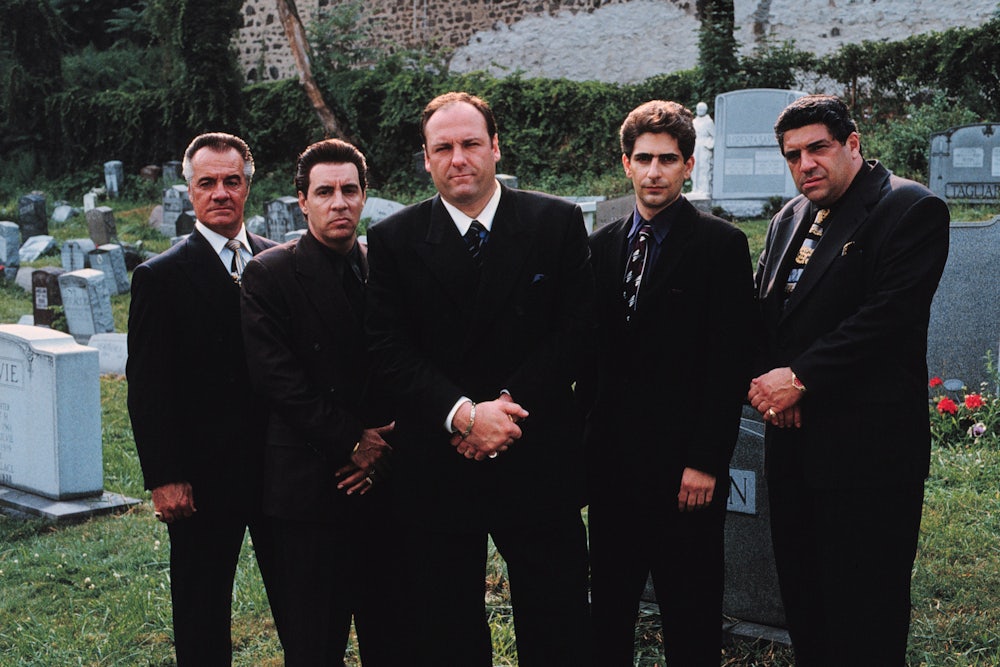It’s only been a month since AT&T’s merger with Time Warner was allowed by a federal judge, in a decision that will have deep and lasting implications for the future of American economic and cultural life. The merger can already be felt in the form of higher prices, while its long-term legacy will likely include increased consolidation—and monopolization—in the telecommunications and media industries. An early loser in the merger appears to be HBO, which was acquired by AT&T a month ago, and is already feeling pressure from executives to overhaul its model in pursuit of greater profits.
As soon as the merger was approved in mid-June, reports emerged that HBO and AT&T were heading toward a culture clash. “HBO’s and AT&T’s cultures also come from a very different financial perspective,” communications expert Gary Arlen told The New York Times. “AT&T comes from a legacy of rate regulations, and every expense has to be justified.” HBO, in contrast, bet big on quality, resulting in a string of successes dating back more than two decades.
At a town hall meeting in mid-June, audio of which was leaked to the Times, newly installed executive John Stankey told employees: “It’s going to be a tough year. It’s going to be a lot of work to alter and change direction a little bit.” He added, “You will work very hard, and this next year will—my wife hates it when I say this—feel like childbirth.” In Stankey’s mind, HBO is lagging behind in the streaming era and needs to attract more subscribers and keep them watching HBO programming. The goal is apparently to turn the company into a competitor to Netflix, Amazon Prime, and Disney’s streaming service, which is set to launch some time next year.
There are certainly reasons for HBO’s 30 million-plus subscribers to be concerned. Turning HBO into Netflix is reflective of the growing desperation of entrenched cable powers in the streaming era. AT&T is so eager to find a competitor for Netflix that it’s willing to compromise one of its most valuable assets in the process.
HBO has been the most important and consistent television network of the millennium. With hits ranging from Game of Thrones to Girls to The Sopranos to Westworld to Six Feet Under, the network has led all networks at the Emmys for 16 straight years. While no network has been immune to cord-cutting, HBO has shielded itself by producing Game of Thrones, one of the most popular shows in history, and by building a viable product aimed at cord-cutters, HBO Now, that currently boasts five million subscribers.
But even for a network as successful as HBO, Netflix looms large. Five million subscribers is nothing to sneeze at, but Netflix has 125 million subscribers. It has plans to produce 700 original series in 2018 and could spend up to $13 billion on content production. Over the last decade, since it transitioned from a mail company to a content provider, Netflix has already snatched one of HBO’s crowns—its dominance in stand-up comedy—and threatened its supremacy in post-theatrical release movies. Given its investment in original content, it is likely that HBO’s Emmy reign will come to an end sooner rather than later.
There are crucial differences between HBO, Netflix, and what Disney is building, however. HBO is still a cable network that needs programming to fill 24 hours a day, seven times a week. About 70 percent of what is watched on HBO isn’t original programming, but Hollywood movies. It creates shows, many of which are ambitious and highbrow, but that are designed to attract audiences that keep coming back.
Netflix has more in common with Time Warner than it does with HBO, producing hundreds of shows that are aimed at scratching every possible itch. Disney, meanwhile, is basing its streaming platform on its intellectual property—not just the Disney universe, but Star Wars and Marvel as well. It is betting that it can acquire millions of subscribers by giving them Avengers or Rogue Squadron content that they won’t be able to view anywhere else.
HBO’s plan to release at least one—and possibly up to five—Game of Thrones spin-offs gives it a certain advantage. In terms of original content, it has a reputation for quality and innovation, and it has room to grow. HBO spent about $2.5 billion last year making television, a figure that includes Game of Thrones’s budget-busting production. That’s nearly $10 billion less than Netflix. HBO has bet on its culture and its reputation again and again and has come out on top.
But Stankey wants HBO to find ways to bleed loyal customers, attract new ones, and ramp up its content production. And it would do this ostensibly without sacrificing the brand it has built over the past three decades. “You get more data and information about a customer that then allows you to do things like monetize through alternate models of advertising as well as subscriptions, which I think is very important to play in tomorrow’s world,” Stankey told HBO employees. He told them he wants viewers to watch “hours a day” instead of “hours a week.” He didn’t tell them how much money AT&T planned on investing in HBO, just that he expected the network to be more profitable.
This could be a recipe for disaster. AT&T is saying that it doesn’t want HBO to change its identity, while demanding that it become a Netflix competitor, “monetize” through advertising, and capture its audience on an hourly basis—all without a guaranteed investment from its new minders. Since its inception, HBO’s motto has been, “It’s not TV, it’s HBO.” AT&T still doesn’t want HBO to be TV—but it does want it to be Netflix.
